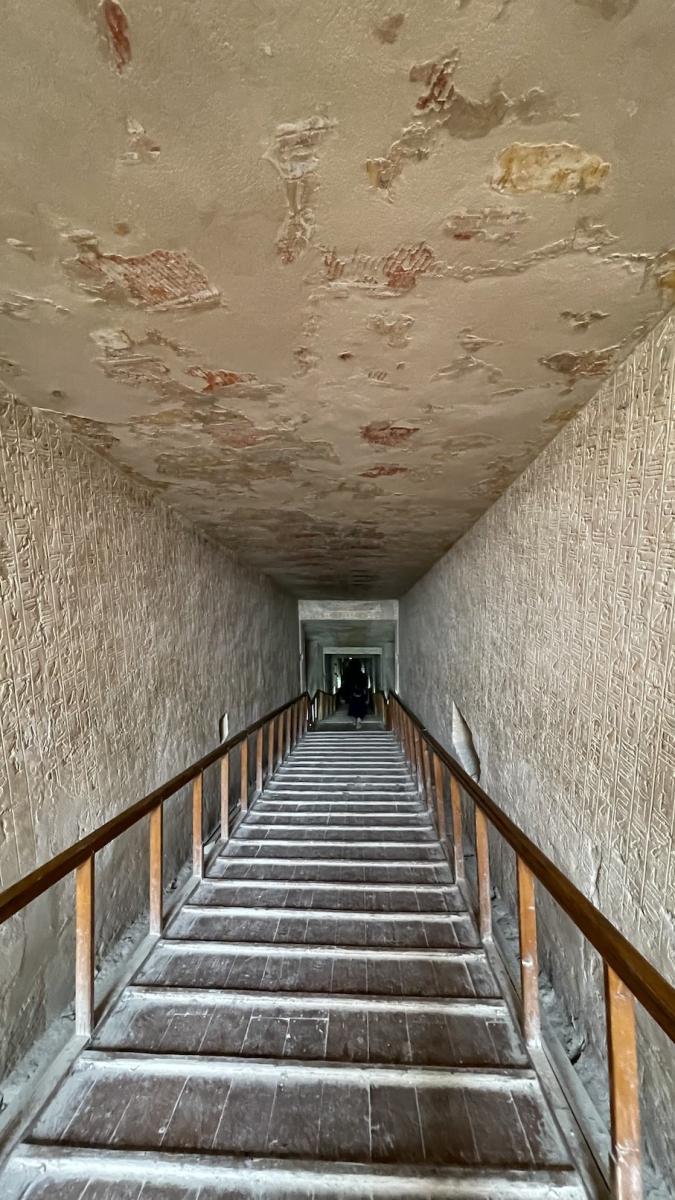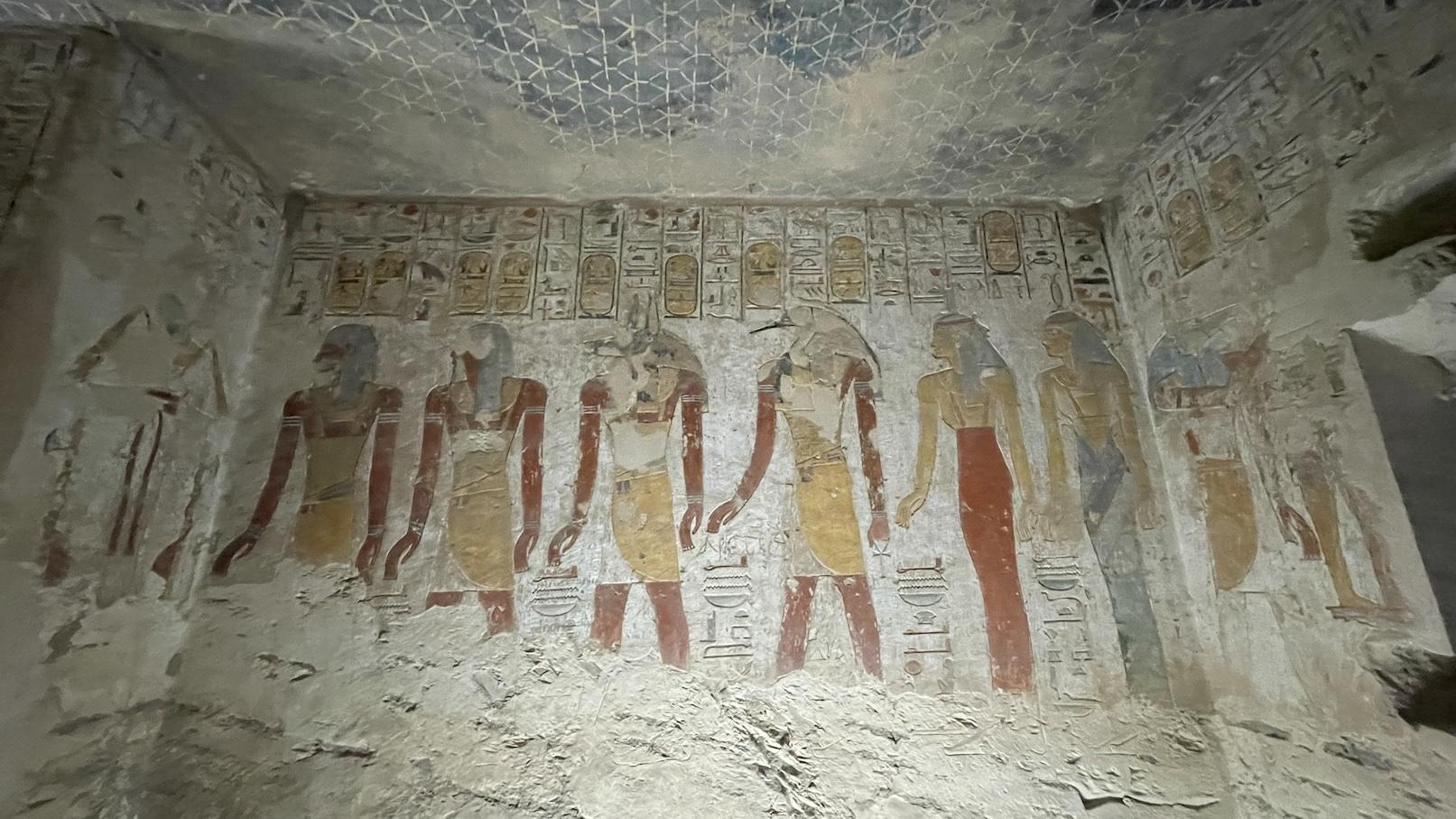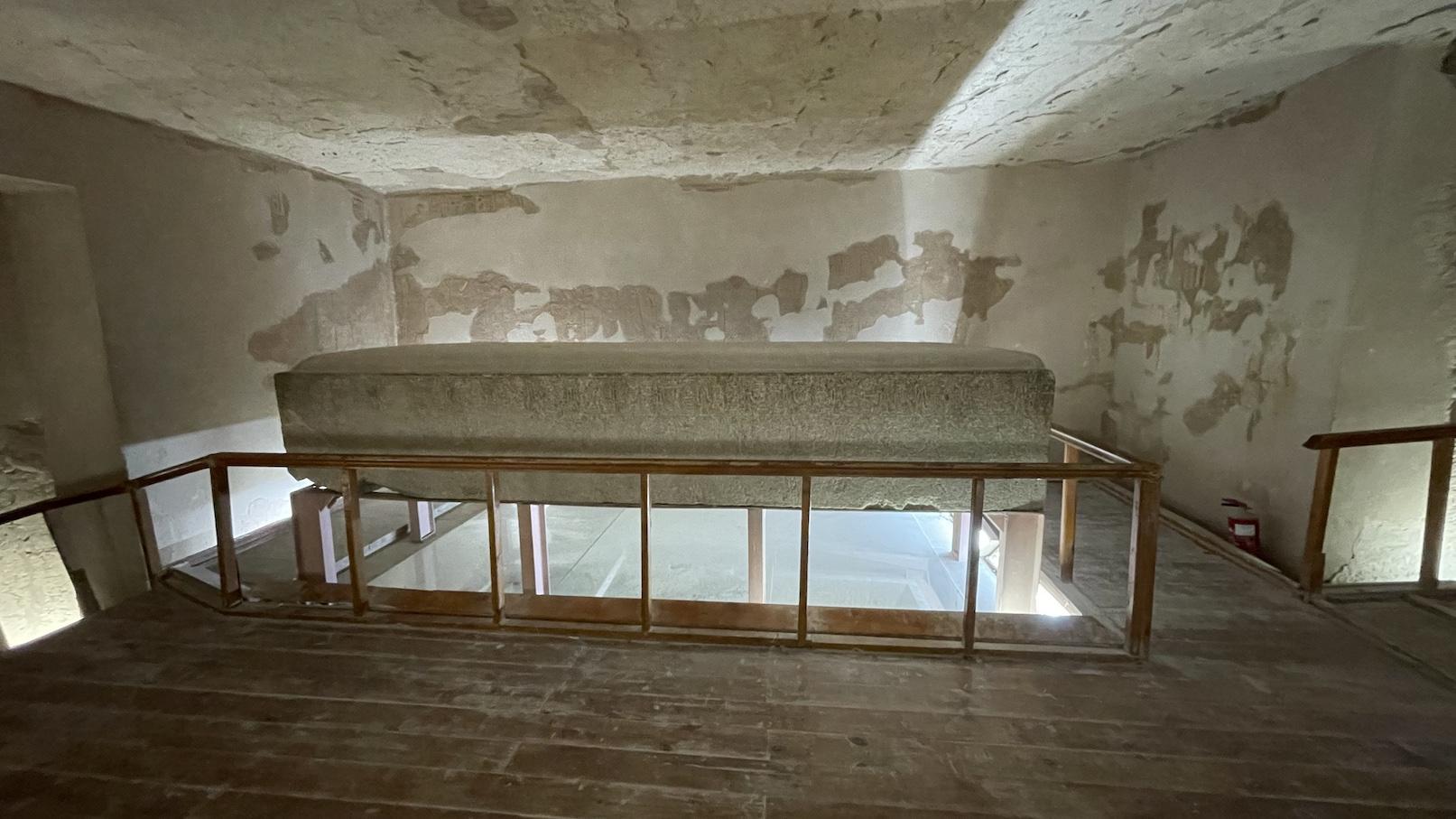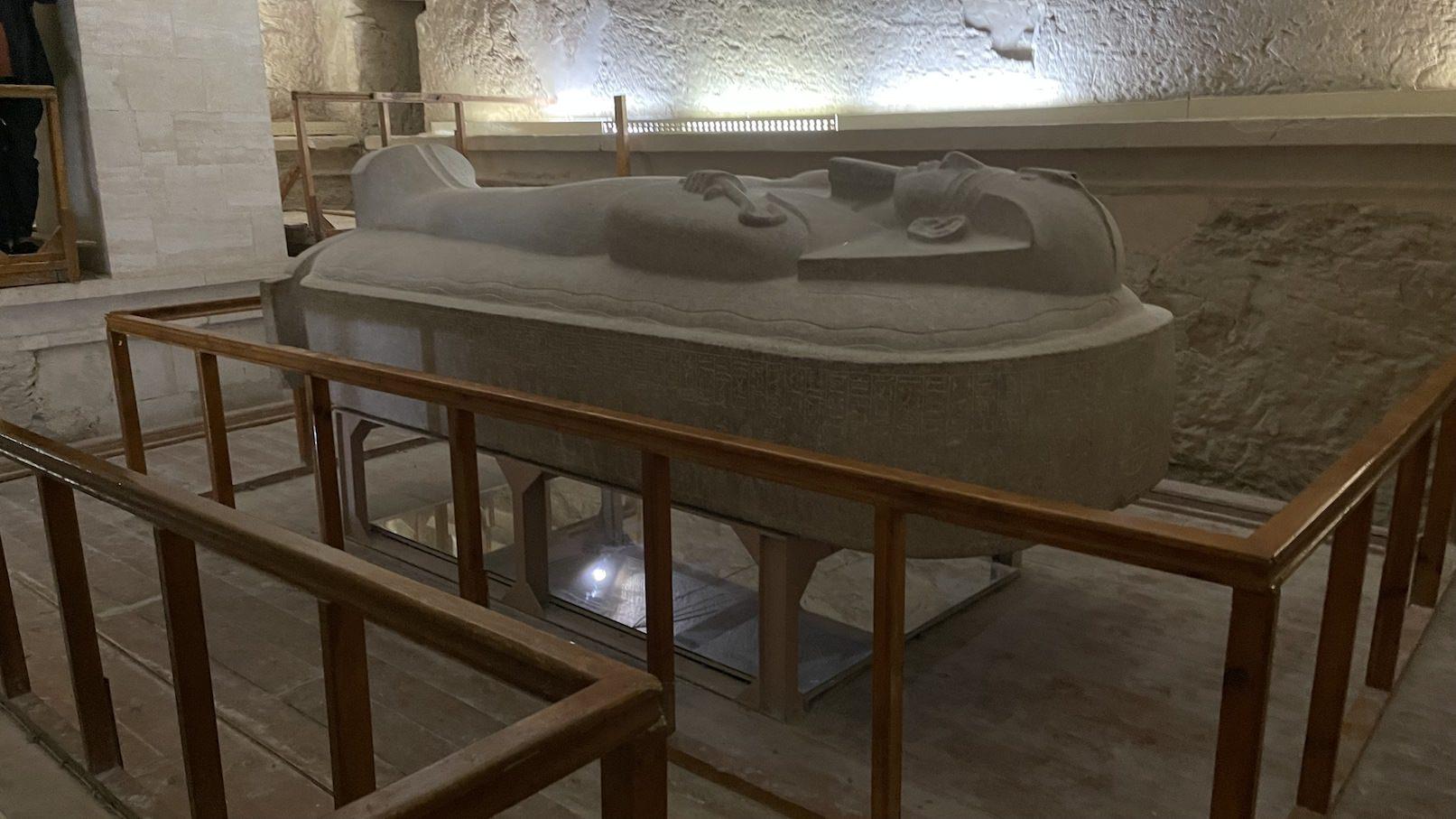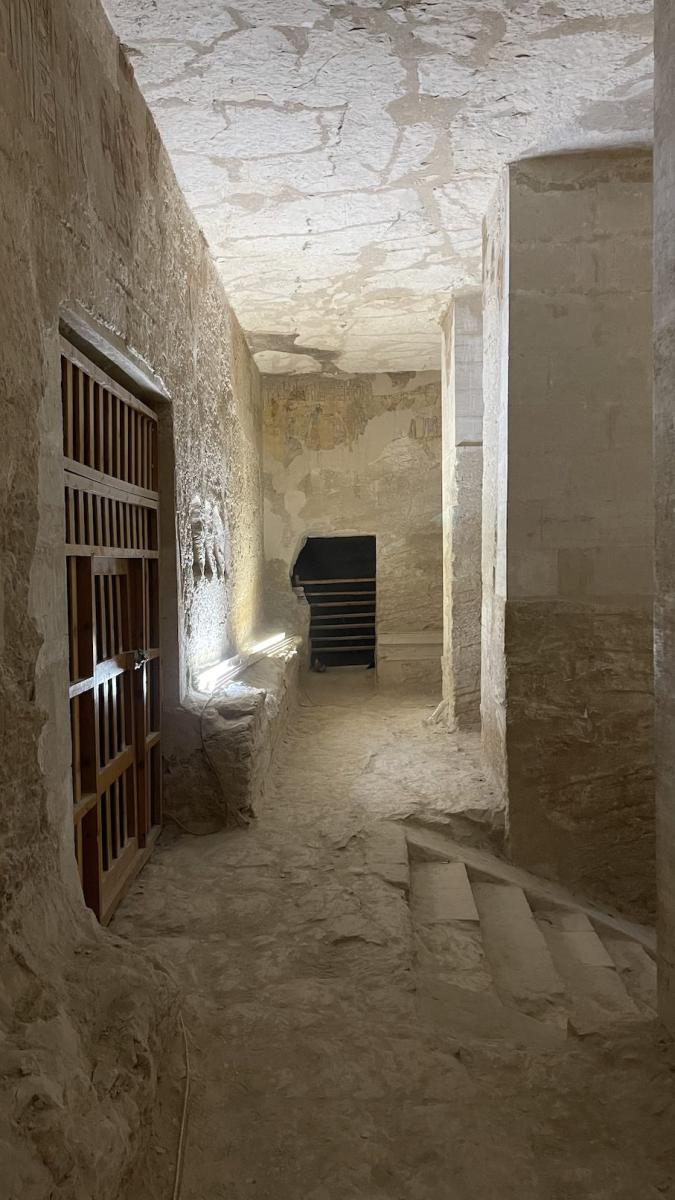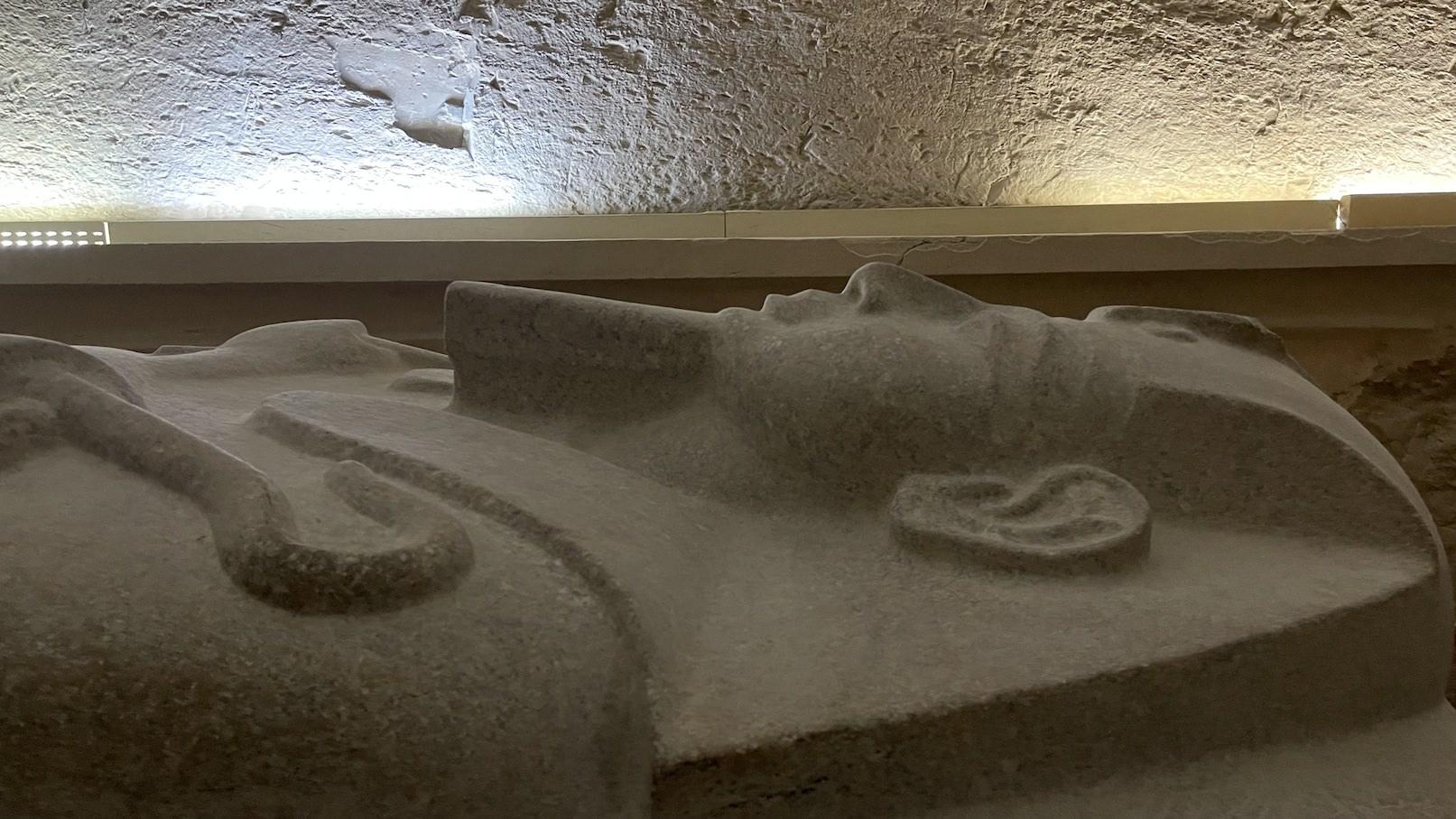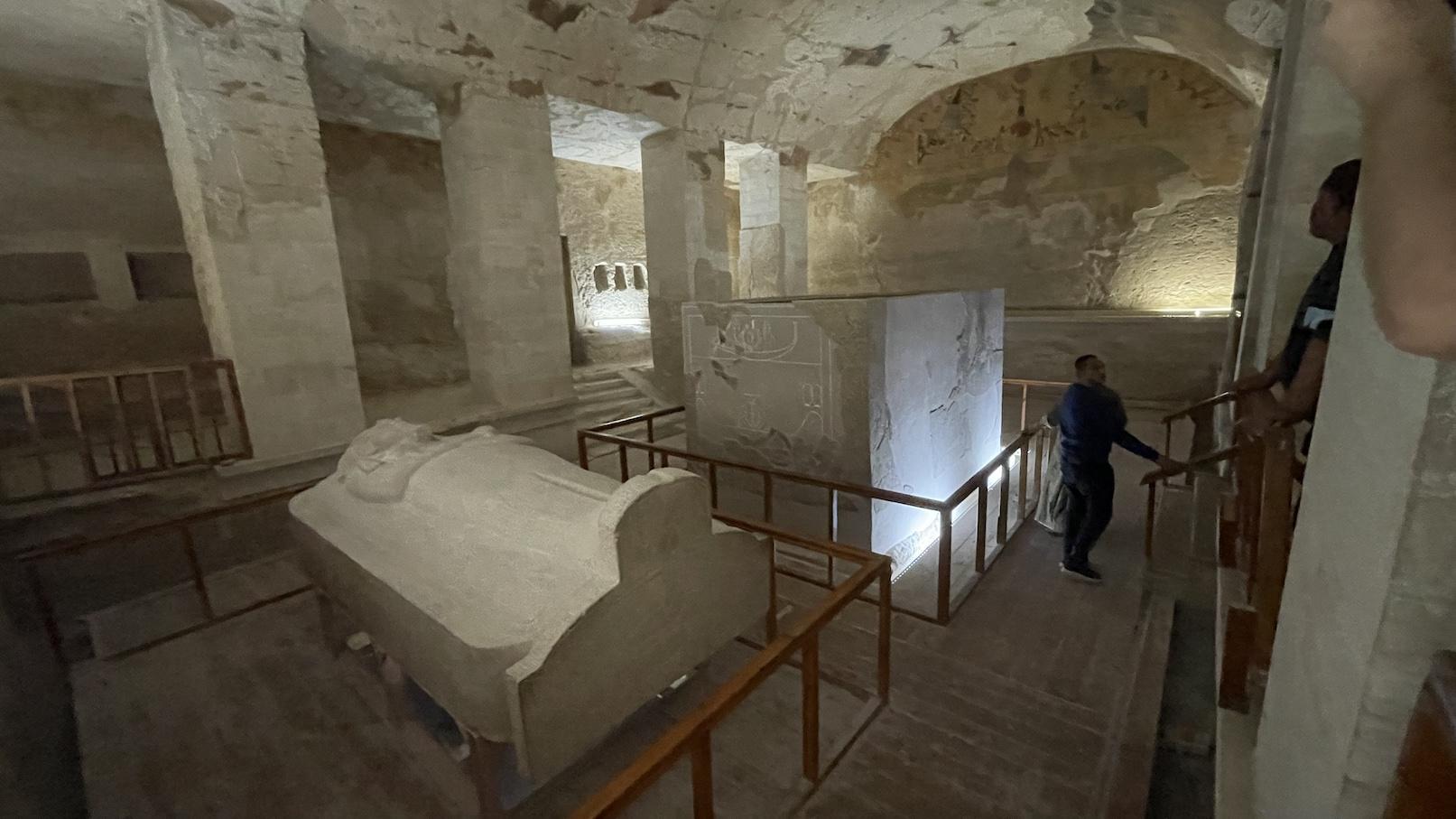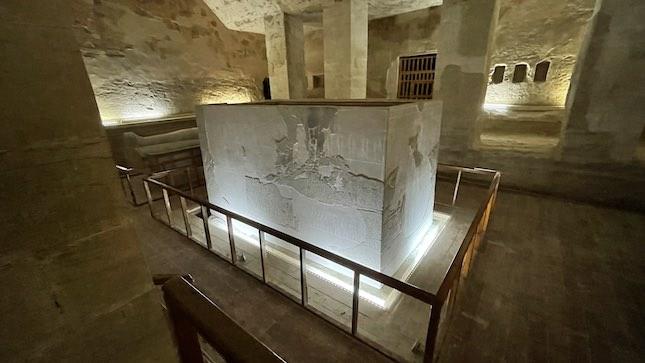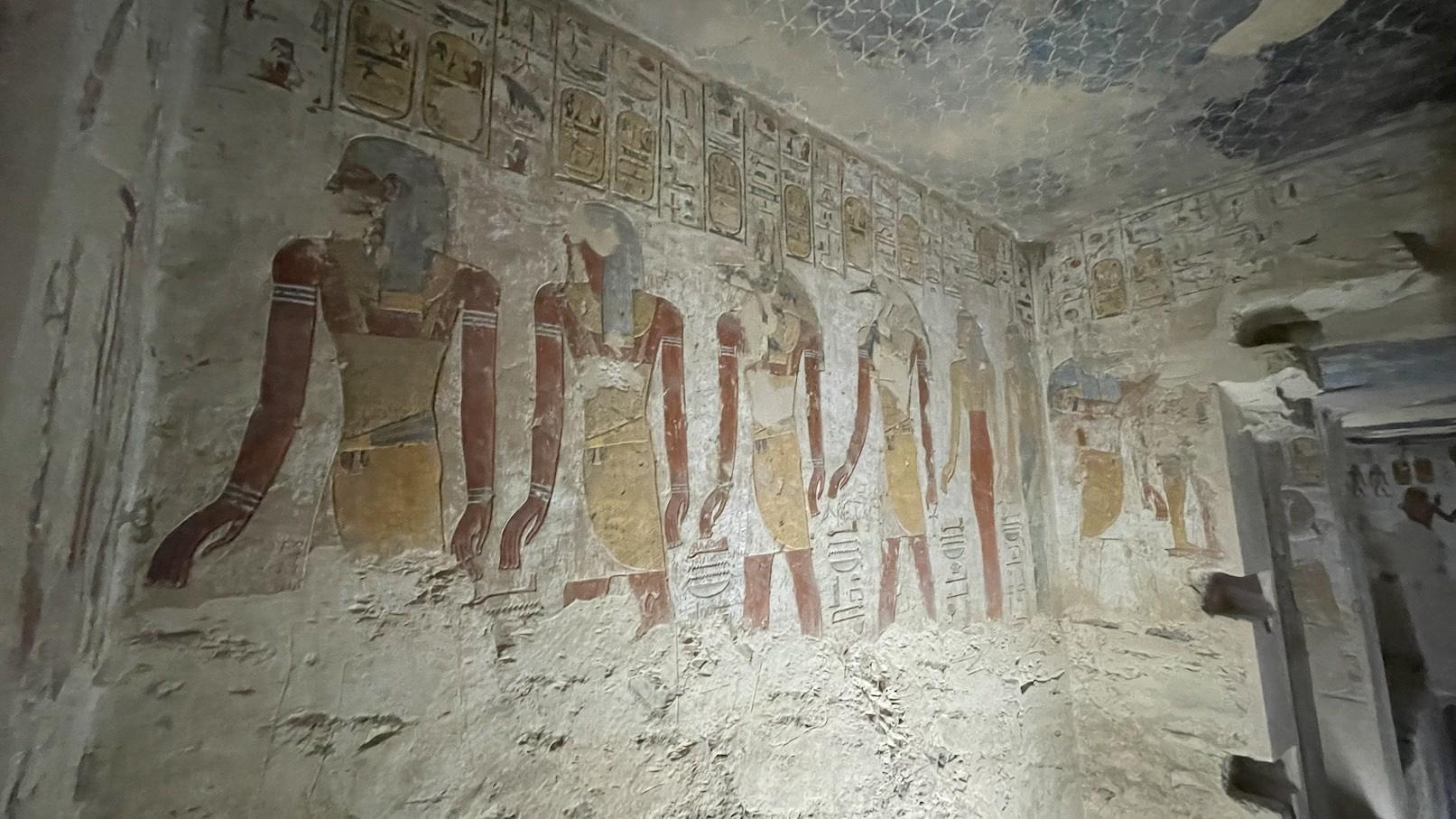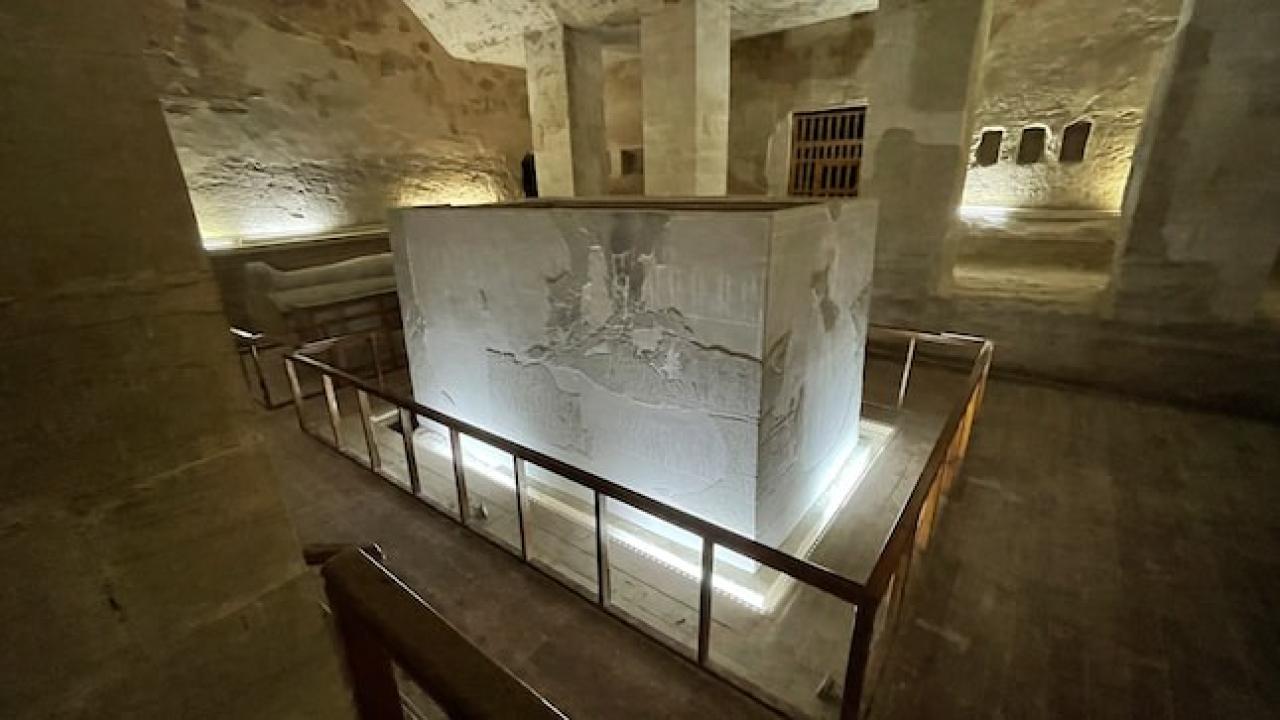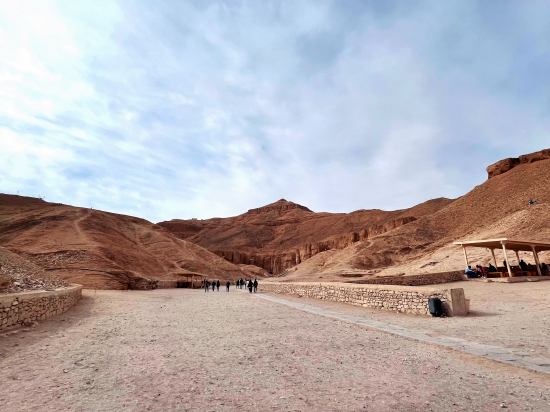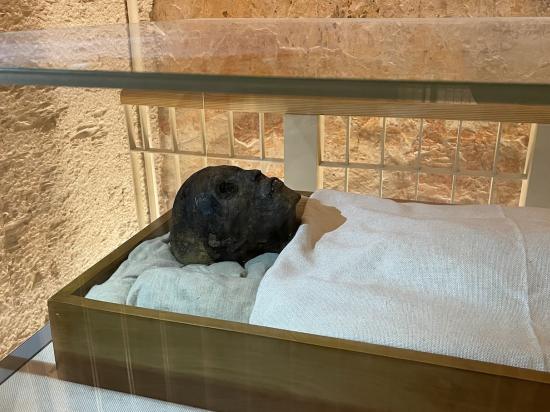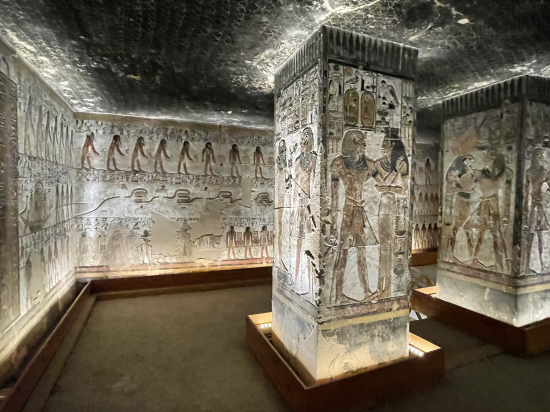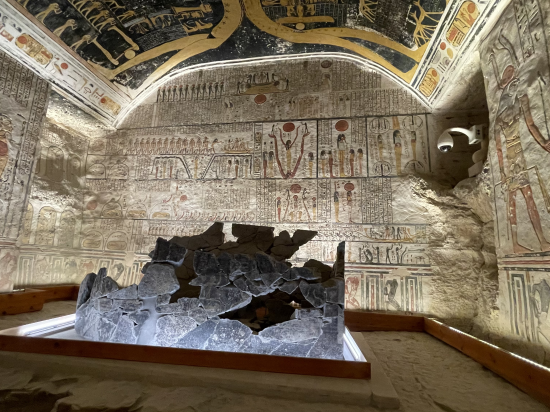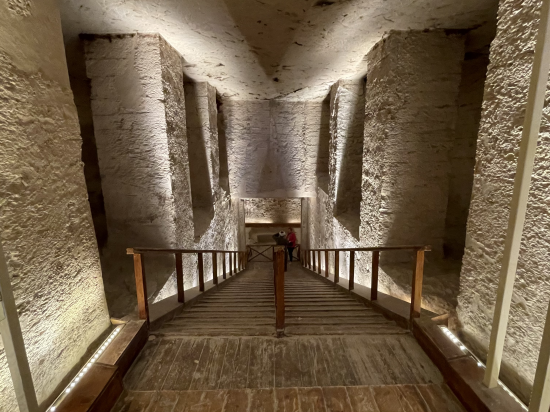The Tomb of Merenptha (KV 8)
Though the long reign of his father Ramses II overshadows almos all other pharaos of the New Kindgom, Merenptha was a successful king in his own right.
He is probably best known for the Victory Stele, also called Israel Stele, because it is the first time in history referring to an obscure people called the Israelites. The stele was discovered by pioneer Egyptologist Flinders Petrie and got assigned a prominent place in the Egyptian Museum in Cairo and states the following:
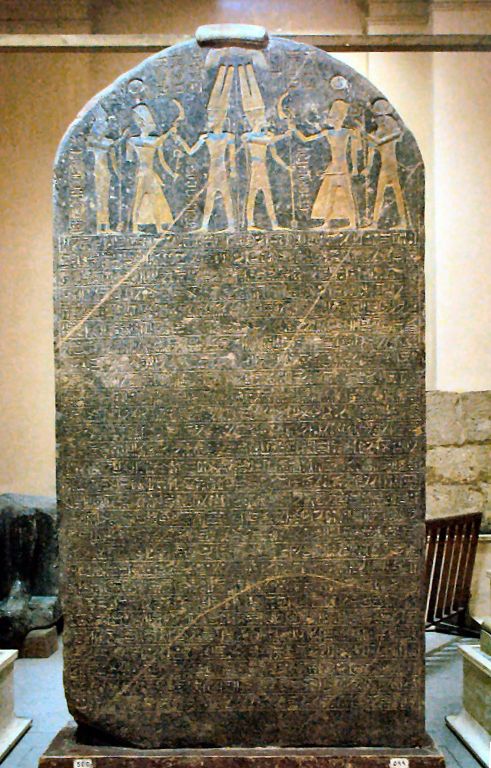
<a href="//commons.wikimedia.org/w/index.php?title=User:Webscribe&action=edit&redlink=1" class="new" title="User:Webscribe (page does not exist)">Webscribe</a> - <span class="int-own-work" lang="en">Own work</span>, CC BY-SA 3.0, Link
The princes are prostrate, saying, "Peace!"
Not one is raising his head among the Nine Bows.
Now that Tehenu (Libya) has come to ruin,
Hatti is pacified;
The Canaan has been plundered into every sort of woe:
Ashkelon has been overcome;
Gezer has been captured;
Yano'am is made non-existent.
Israel is laid waste and his seed is not;
Hurru is become a widow because of Egypt.
Like almost every tomb in the valley, Merenptah's has been looted by grave robbers, but savy priets of later dynasties have recovered his mummy and placed them with many other mummies of Pharaos and Great Royal Wives in KV 35, the Tomb of Amenhotep II.
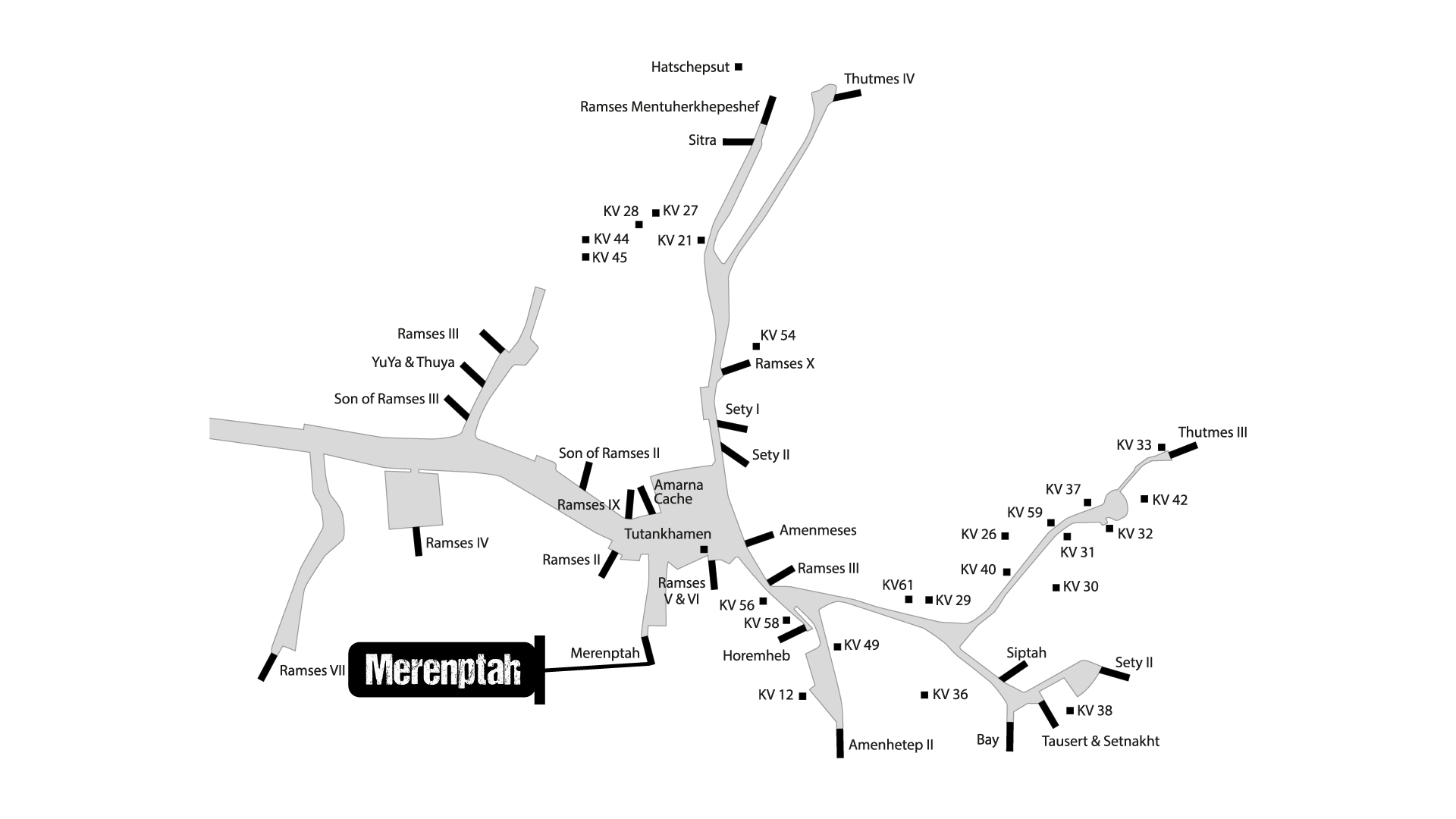
- The tomb is designated KV8 and is one of the largest tombs in the Valley of the Kings. It consists of a series of corridors and chambers that lead to the burial chamber.
- The tomb was discovered by archaeologist Victor Loret in 1903, and many of the artifacts found inside are now housed in the Egyptian Museum in Cairo.
- The tomb features intricate and well-preserved decorations and reliefs that depict scenes from Egyptian mythology and daily life.
- One of the most significant features of the tomb is the burial chamber, which contains a large sarcophagus made of granite that was originally covered in gold leaf.
- The tomb also contains several small side chambers that were used for storage and the placement of funerary objects.
